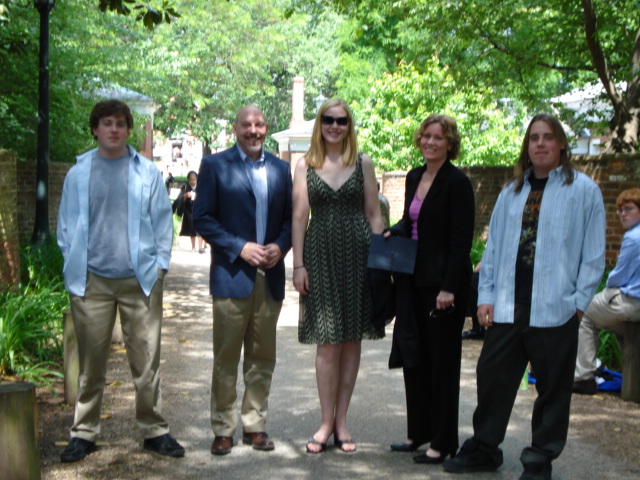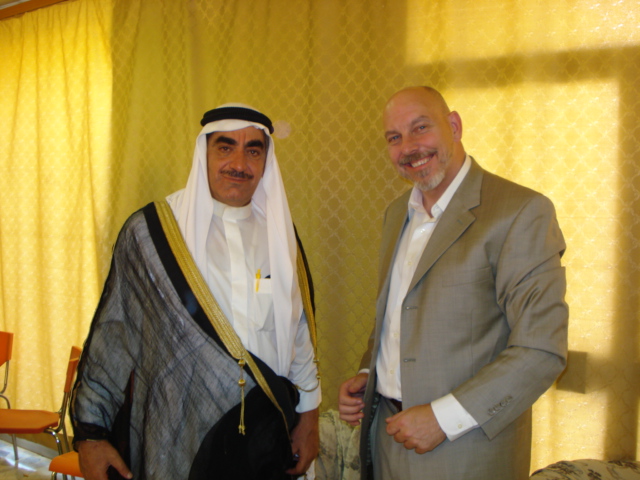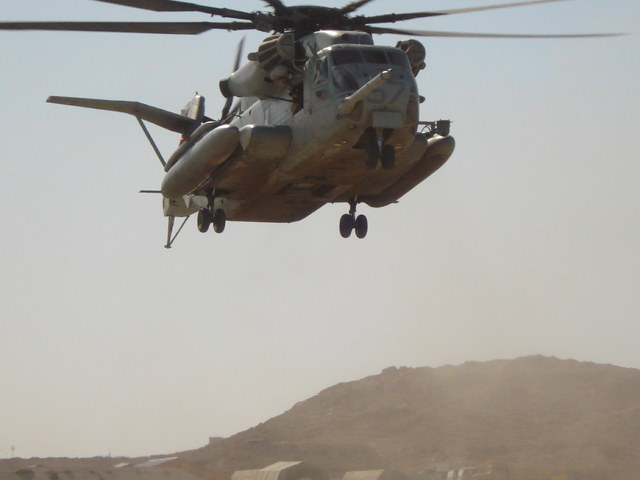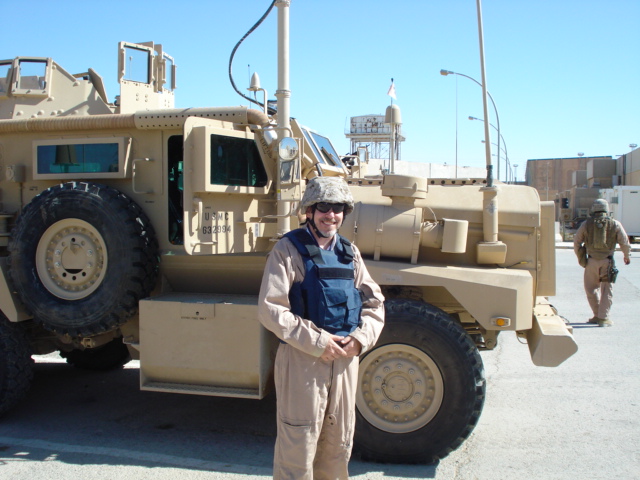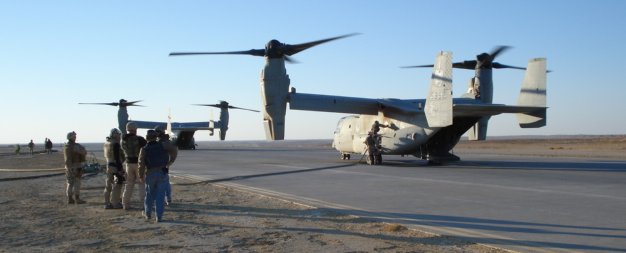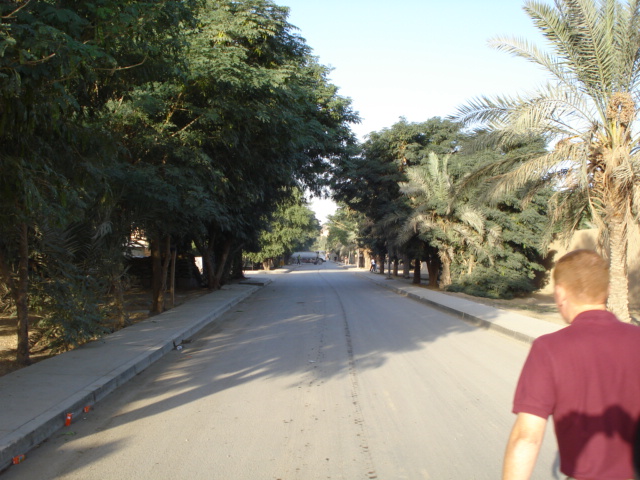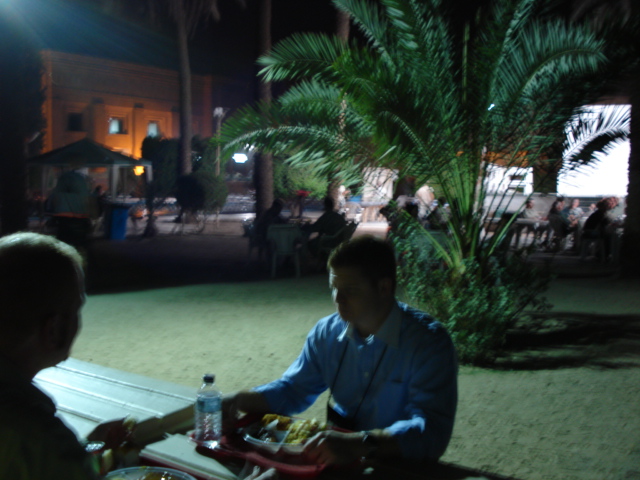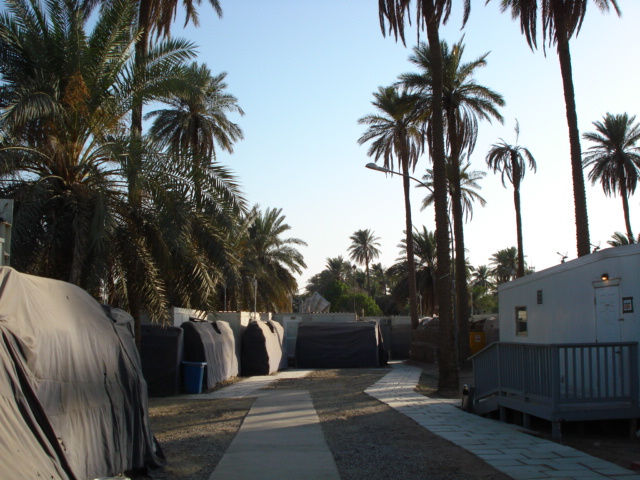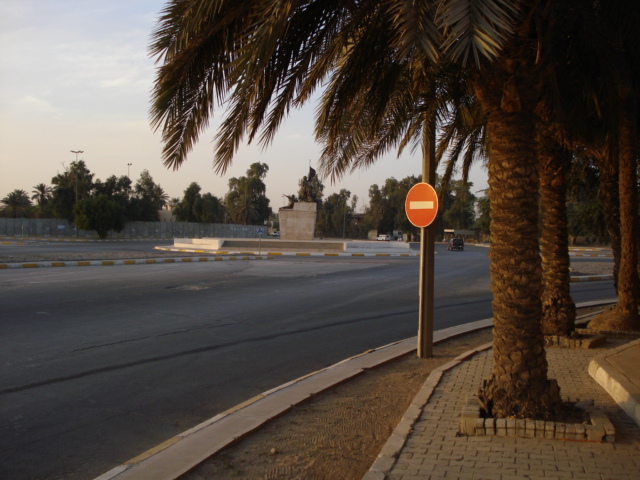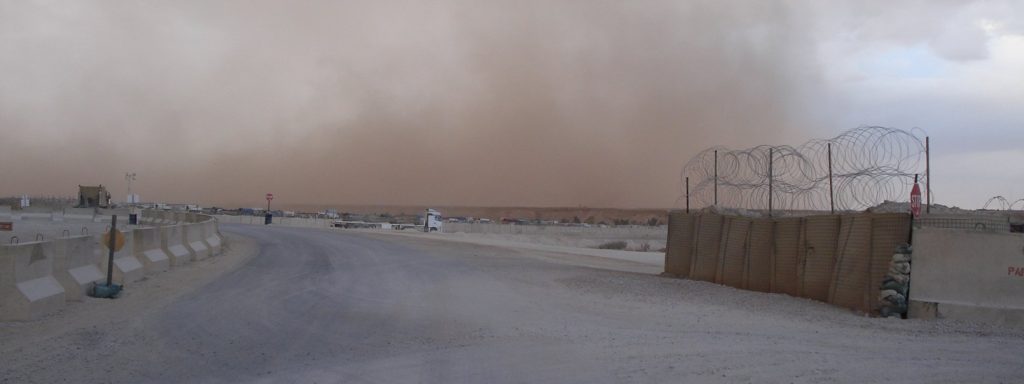
I have yet to see the kind of dust storm in the picture and the picture is from the webpage of an earlier inhabitant of Al Asad. I have something to look forward to.
Even absent spectacular “Mummy-class” sandstorms, if I had to use one word to describe Al Asad it would be dust. But I would need more than this one word to describe the dust itself. Naturally, we have the blowing dust. I expected the blowing-in-the-wind dust. It is the other kinds that I find more interesting.
I had not anticipated fog-dust. I thought that dust would have an identifiable source and would either move in the wind or settle to the ground. Evidently not. Night before last I thought a fog had rolled in, but it was dust. It made the waning moon a very attractive shade of red. The dust just hung there. It was still there in the morning when it looked more like a haze. This morning it was windy and it looked clear, but after I ran around a little, I found that my ears, nose and throat were full of sand. The finer dust particles are almost invisible.
I have seen moon-dust before, but never so much. Moon dust is the kind of dust that cannot decide whether it should float in the air or lay on the ground so it does both. I recently was disappointed to find that what looked like a nice smooth running trail was actually moon-dust obscuring some pretty painful rocks. Moon dust disperses when you put your foot down; it is almost viscous or liquid. Some crawls up your legs and gets in your shorts; some slithers down and gets in your socks. It is best avoided. I do not think the moon-dust is really indigenous to Anbar or natural in general. The constant rolling of our heavy vehicles and machinery probably creates the moon dust. You often find moon dust around construction sites and I think that is the process here.
Of course there is the dust that our machines kick up more immediately. Helicopters are excellent dust creators. This is the most painful type of dust, containing little stones thrown at high velocity, but you can hunker down and ride it out.
Dust gets on everything. It is a great equalizer, making dark and light a homogeneous grayish-brown. I had my sunglasses secured in a zippered pocket, but when I took them out they were covered in dust. Most of the local dust is khaki colored. I understand the Brits in India’s Northwest Frontier province, a place with similar soils, “invented” that uniform color after everything they owned spontaneously turned khaki anyway. The funny thing is that the dust inside building seems whitish. Maybe if enough of it piled up it would look khaki. I will probably find out, since. I have to admit that daily dusting is not on my agenda. Computers are the worst because of all the nooks and crannies in the keyboards and their dust attracting fans and electromagnetic fields. I keep my computer fairly clean with daily effort. I bought a bunch of Ziploc bags to put some of my other stuff. That helps some.
I don’t suppose it is healthy to breathe all this dust. My throat and nose feel dry a lot, but otherwise I do not feel any worse for the wear. If I gain weight, I can blame the dust accretion on my insides. But the concept of dust inspires no great fear. I lived through worse. As a young man I worked at Medusa Cement Company loading bags all day, twelve hour shifts. That is where I became intimate with dust. We had the cement equivalent of moon-dust and a lot more dust churning around in whatever lethargic breeze managed to get into the warehouse. The cement dust would stick to sweaty flesh and it was persistent because it was waterproof once it adhered and hard to wash off. What worked (and I don’t know why) was Irish Spring soap. I used to particularly hate the dust in my beautiful blondish hair because it would sort of set up when I got it wet. The Lord, in his wisdom, has taken the burden of hair off my head. Besides the Al Asad dust, for all its offensiveness, seems to be water soluble.

